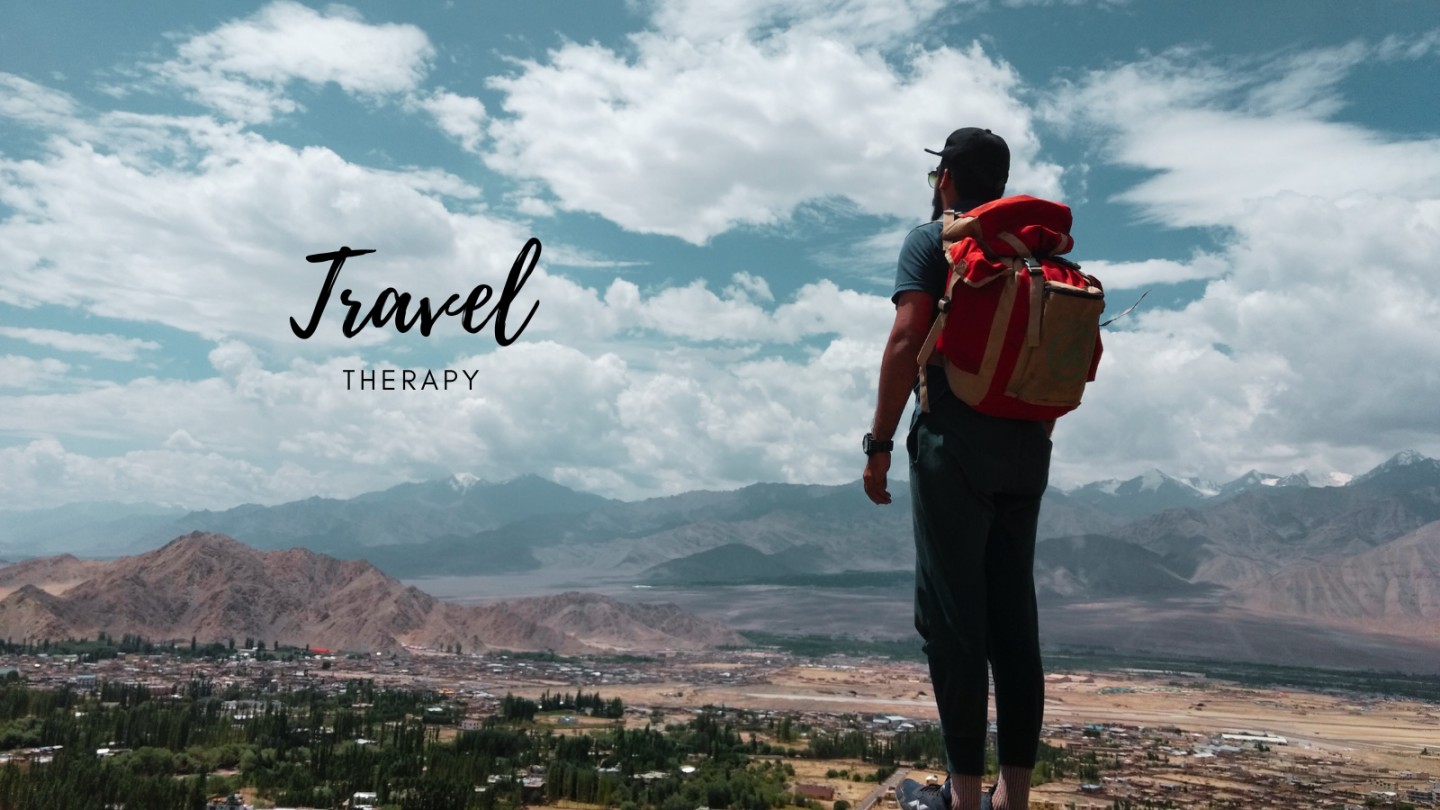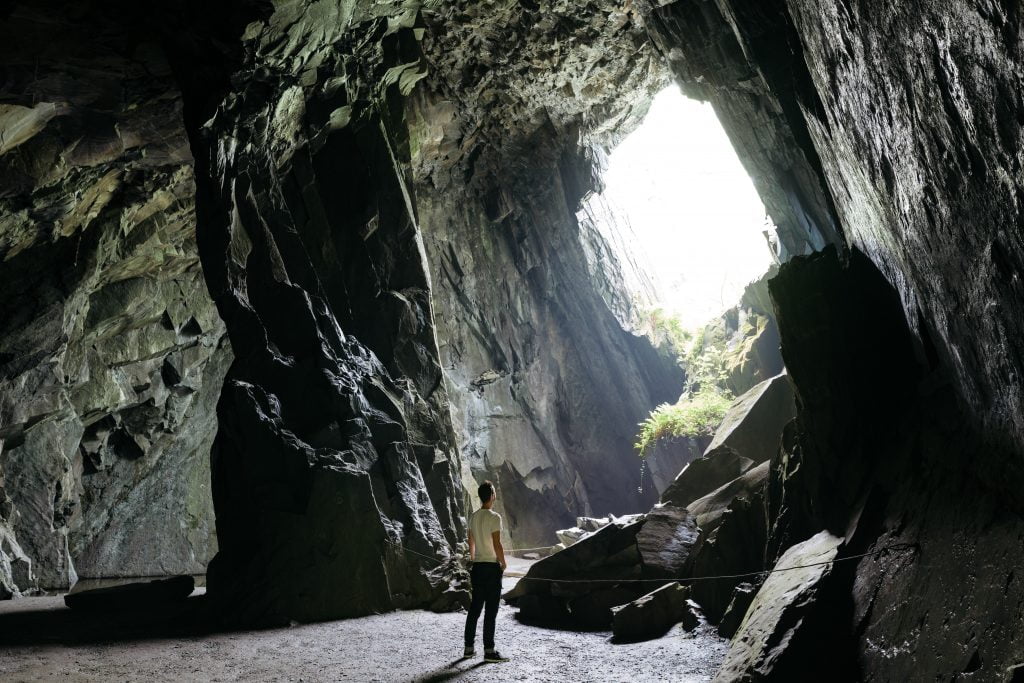Ah, travel! The mere mention conjures images of palm-fringed beaches, snow-capped peaks, and bustling cityscapes. But what if we told you that beyond the postcard-perfect moments, travel holds the key to unlocking a deeper level of stress relief, a transformative experience we call Travel Therapy?
Travel Therapy isn’t about ticking off destinations on a map; it’s about using those journeys as a mirror, reflecting our inner landscapes and allowing us to address the very things that contribute to travel anxiety and stress. Think of it as a personalized itinerary for your well-being. By understanding your unique needs and triggers, we can craft travel experiences that not only melt away stress but also equip you with tools to manage it, even when you’re back home.
Ready to pack your bags for a stress-free future? Buckle up, because the next chapter of your story begins with a single step… and maybe a plane ticket.

The Science Behind Travel Therapy
Forget the fancy spas and meditation apps, the ultimate stressbuster might just be hidden in your passport! Travel isn’t just about collecting souvenirs and snapping selfies; it’s a potent cocktail of psychological benefits that can leave you feeling rejuvenated, calmer, and sharper than ever before. Here’s why:
1. Cortisol Crushing
Ever heard of the “stress hormone,” cortisol? It’s the nasty culprit behind that tight chest and racing mind. Well, research by Sonnentag and Fritz (2007) found that vacations can significantly decrease cortisol levels, leaving you feeling Zen and collected. Imagine trading city smog for mountain air and watching your stress melt away like snow in the sun.
2. Endorphin Explosion
Feeling down? Travel can be your personal happiness injection! Studies by Westman and Etzion (2001) show that new experiences trigger the release of endorphins, those feel-good chemicals that bathe your brain in sunshine. Whether it’s conquering a mountain trail or trying exotic cuisine, travel is a surefire way to boost your mood and leave you with a smile brighter than any Instagram filter.
3. Cognitive Kickstart
Feeling like your brain’s running on dial-up? Travel can be your broadband upgrade! Immersing yourself in new cultures and environments challenges your brain in exciting ways, enhancing cognitive flexibility and memory. A study by Chen et al. (2016) found that travel can even improve creativity and problem-solving skills. So, ditch the crossword puzzles and hop on a plane – your brain will thank you for it!
4. Anxiety Antidote
Feeling overwhelmed by the daily grind? Travel can be your anxiety antidote. Studies by Strauss-Blasche et al. (2005) show that vacations can significantly reduce anxiety symptoms, offering a much-needed escape from the pressures of everyday life. Whether it’s the calming rhythm of the ocean waves or the awe-inspiring beauty of a mountain vista, travel can be the balm your anxious soul needs.
5. Mindfulness Masterclass
Travel can be your personal mindfulness retreat! Stepping outside your comfort zone and embracing new experiences forces you to be present in the moment, naturally promoting mindfulness. A study by Neuhäuser et al. (2015) found that travel can even lead to long-term improvements in mindfulness skills, helping you manage stress and stay present even when you’re back home.
So, the next time you’re feeling frazzled, don’t just reach for the coffee – reach for your passport! Travel therapy is backed by science and proven to be a powerful tool for stress reduction, happiness boosting, and cognitive enhancement.
Remember, research is an ongoing process, so be sure to check for the latest studies and findings to stay updated on the amazing ways therapeutic travel can benefit your mental well-being.

Tourism Therapy for Stress
We’ve established that travel is a potent stress-buster, but with so many destinations and styles, crafting the perfect travel therapy plan can be overwhelming. Fear not, wanderlust warriors! Here’s a guide to different travel styles and activities you can mix and match to create your personalized toursim therapy for stress melting itinerary:
- Adventure travel: Stepping outside your comfort zone and tackling new challenges can boost confidence and resilience.
- Nature immersion: Spending time in natural environments has been shown to lower stress and improve mood.
- Cultural exploration: Immersing yourself in new cultures can broaden your perspective and challenge negative thought patterns.
- Mindfulness practices: Integrating mindfulness exercises like meditation or yoga into your travel routine can enhance present-moment awareness and reduce stress.

How to Personalize a Therapeutic Travel?
Travel psychologists wear many hats, guiding individuals and groups toward transformative journeys that blend stress-reduction with self-discovery. Here’s a peek into their toolkit “Tangible Travel Tool“:
1. Pre-Journey Exploration
- Initial Assessment: They meet with clients to understand their travel goals, preferred styles, budget, and any anxieties or stress related to travel.
- Personality Profiling: Using psychological tools and questionnaires, they assess travel habits, coping mechanisms, and preferred environments to tailor the trip.
- Identifying Stressors: They delve into specific concerns like fear of flying, cultural differences, or uncertainty, addressing them with appropriate strategies.
2. Itinerary Design
- Curating Experiences: Based on preferences and goals, they design itineraries that combine relaxation with stimulating activities, ensuring a good balance.
- Mindfulness Integration: They weave mindfulness practices like meditation or reflection exercises into the itinerary to enhance the stress-reducing impact.
- Building Resilience: They incorporate activities that challenge clients outside their comfort zones, fostering personal growth and resilience for future travels.
3. During the Journey
- Ongoing Support: Travel psychologists may be available virtually or in person during the trip, offering guidance and support if challenges arise.
- Addressing Anxieties: They provide coping mechanisms and exercises to manage unexpected situations or cultural clashes, ensuring a smooth and enjoyable experience.
- Encouraging Mindfulness: They remind clients to be present in the moment, savoring the sights, sounds, and experiences, maximizing the therapeutic benefits.
4. Post-Journey Reflection
- Debriefing Session: They analyze the journey with clients, discussing emotional shifts, personal insights, and newfound coping skills.
- Developing Long-Term Strategies: They help clients integrate the learnings from the travel therapy into their daily lives, building lasting stress-management tools.
- Future Travel Guidance: Based on the post-journey reflection, they offer recommendations for future travel choices that continue to nurture well-being.
Remember: Travel psychologists are not travel agents; they focus on the psychological and emotional aspects of travel, empowering individuals to use the experience as a catalyst for personal growth and stress reduction.

Travelling is my Therapy: Personal story to illustrate the benefits
I vividly recall collapsing onto my office desk, tears blurring the spreadsheets as exhaustion gnawed at my soul. Stress, the relentless beast, had me pinned. A drastic change was needed, so I booked a solo trek to the Himalayas – far from deadlines and concrete jungles.
Stepping onto the crisp mountain air was like an instant balm. Every inhale carried the scent of pine, every exhale releasing a burden I didn’t realize I’d been carrying. Days were spent weaving through rhododendron forests, the silence broken only by the gurgling stream and my own rhythmic breaths. Each step, a mindful meditation, chipped away at the stress armor I’d built.
One evening, camped by a crackling bonfire under a tapestry of stars, I felt a shift. The anxieties, once a constant hum, faded into the embers. A sense of peace, vast as the mountains themselves, filled me. That trip wasn’t just a vacation; it was a reawakening. I returned not just rejuvenated, but with a newfound resilience and a deeper connection to myself. Since then I started the self-talk that travelling is my therapy.

Therapeutic Travel: Your Ticket to Stress-free journey
Travel isn’t just a vacation; it’s a science-backed stressbuster that significantly lowers cortisol levels while boosting endorphins and brainpower, leaving you calmer, happier, and sharper. From adventure thrills to nature immersion, finding the travel style that sparks your inner therapist is key. Solo adventures boost self-discovery, while cultural explorations broaden your horizons, making tailored treatment for tourism therapy for stress.
Therapeutic Travel is more than ticking off destinations; it’s about embracing mindfulness. Practice meditation in breathtaking landscapes, learn a new language, or unleash your inner artist – the possibilities are endless. Even local parks, weekend treks, or mindful walks can serve as personal therapy sessions. This transformative travel experience can help you conquer fears, rediscover passions, and emerge with a renewed sense of self and resilience.
So, ditch the couch, grab your passport, and embark on your own travel therapy adventure. The world awaits with open arms and a toolbox full of stress-reduction magic. Remember, the journey is just as important as the destination – every step, every experience, holds the potential to unlock your calmest, most vibrant self. Bon voyage!






